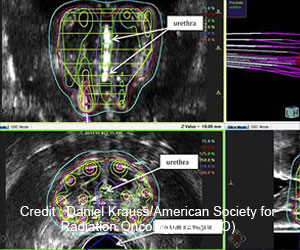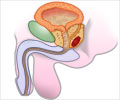Highlights
- Advanced prostate cancer resistant to chemical castration often relapse and progress to metastatic cancer.
- In such cancers, there is the presence of immune cells known as myeloid-derived suppressor cells (MDSCs) that are treatment resistant and associated with poor prognosis.
- New combination therapy using immune checkpoint blockades along with therapies targeting myeloid-derived suppressor cells (MDSCs) is found to be effective in treating such advanced cancers.
They originate in the bone marrow and possess strong immunosuppressive abilities. They are resistant to treatment and play a role in tumor formation and metastasis. These cells are commonly associated with poor patient prognosis.
"A significant number of advanced prostate cancer patients treated with a chemical castration therapy called androgen deprivation therapy (ADT) experience relapse with relentless progression to lethal metastatic, castration-resistant prostate cancer," said Ronald DePinho, M.D., professor of Cancer Biology.
"While immune checkpoint blockade therapy is effective in many cancers, it has been less successful for this particular form of prostate cancer, which has motivated a search for targeted therapies that overcome this resistance." DePhino added.
What are Immune Checkpoints?
To start an immune response, the immune system uses checkpoints. Checkpoints are molecules on certain immune cells that need to be activated or inactivated.
PD-1 and CTLA-4 are such checkpoints found on immune cells.
PDU is a checkpoint protein on immune cells called T cells that prevents the T cells from attacking other cells in the body.
CTLA-4 is another protein on certain T cells that acts as a type of “off switch” to keep the immune system in check.
Drugs that target these checkpoints are known as immune checkpoint blockades or inhibitors.
Using Combination Therapy
Researchers at The University of Texas MD Anderson Cancer Center developed a novel chimeric mouse model to test the combination therapy using immune checkpoint blockades with therapies targeting myeloid-derived suppressor cells (MDSCs).
Researchers initially tested each therapy individually and found the anti-tumor effect to be minimal.
They first tested two immune checkpoint blockades, anti-CTLA4 and anti-PD1 in combination and found only "modest efficacy".
Then, they used targeted therapy using MDSC-inhibiting drugs, such as cabozantinib (Cabo) and BEZ, which again demonstrated only minimal anti-tumor capabilities. But in combination of both therapeutic approaches proved successful.
"Strikingly, both primary and metastatic castration-resistant prostate cancer responded to a combined checkpoint blockade and MDSC targeted therapeutic approach," said DePinho.
"These observations in mouse models of prostate cancer, using a sophisticated genetic approach developed by James Horner at MD Anderson, illuminate a clinical path hypothesis for combining immune checkpoint blockades with MDSC-targeted therapies in the treatment of this aggressive cancer." DePinho added.
Researchers added that to validate the findings, clinical trials will be needed.
The findings were published in Nature.
Reference
- Immune checkpoint inhibitors to treat cancer - (https://www.cancer.org/treatment/treatments-and-side-effects/treatment-types/immunotherapy/immune-checkpoint-inhibitors.html)
Source-Medindia














